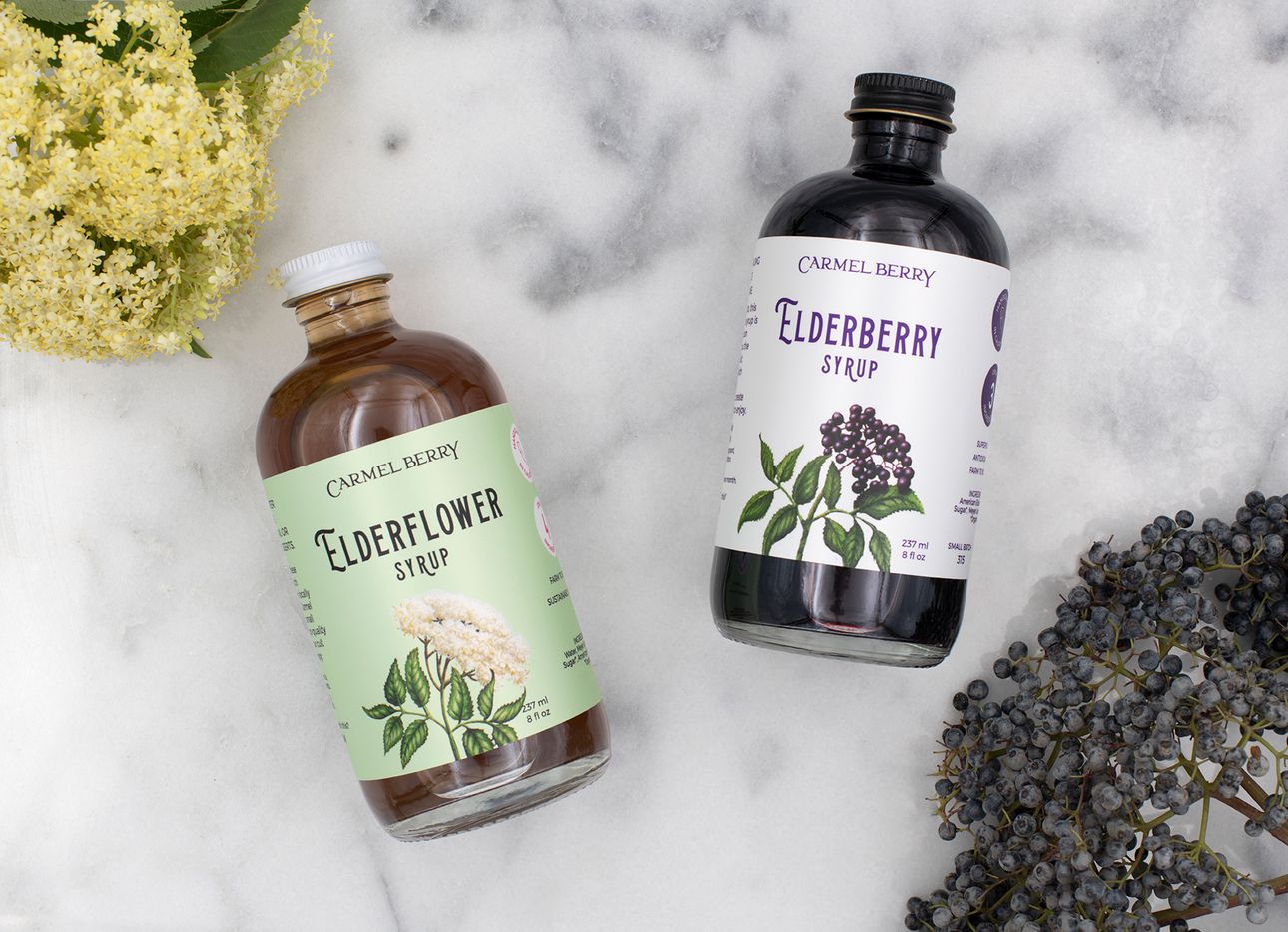
A California Condiments Brand Extols the Benefits of Elderberry to Fans and Farmers Alike
Hippocrates, the ancient Greek physician known as the father of modern medicine, affectionately called elderberry his “medicine chest.” The flowering shrub—which sprouts bright, antioxidant-rich berries that contain potassium, calcium, and vitamins C and D—has been used for centuries to remedy a range of conditions including the flu, insect bites, and toothaches. Since the seeds of the tangy fruit are toxic, elderberries must be cooked before they’re eaten, and often take the form of jams, syrups, and lozenges.
Katie Reneker first learned about the plant’s benefits years ago, while looking for natural ways to keep her young sons’ immune systems strong. But she could only find elderberries in health-food stores, and the berries were almost always imported from Europe, dried, and enhanced with thickeners or preservatives. She soon realized that the plant grew wild around her home in Carmel Valley, California, and began foraging for the berries to make an additive-free version of the syrup herself. In 2015, she began selling the sweet liquid under the brand Carmel Berry Company, using only fresh-pressed elderberries and flowers sourced from regional farms.
To keep her venture’s farmer-focused approach intact as it expands—the line currently includes tea, preserves, and balsamic vinegar, and is now available in more than 100 independent markets in addition to select Whole Foods stores—Reneker builds her own supply chain by teaching more people how to grow elderberry. She regularly hosts workshops on harvesting, post-harvesting, organic certification, and sales for new and prospective growers, and even offers grants to help farmers get their elderberry operations started.
“The small, organic farming communities I know never have it easy, competing against Big Ag and falling prices on crops they’ve historically grown, not to mention the power of Mother Nature,” Reneker says. “If I can help farmers diversify with a high-value crop like elderberry to strengthen their farms, then I want to do that. It’s a big risk to take on a new crop. But hopefully, by offering support and connecting new growers to established mentors, I can ease the learning curve.” During the pandemic last year, hundreds of farmers showed up for sessions she held online. Reneker also supports a handful of indigenous organizations that are working to teach younger generations about healing plants, including elderberry.
Reneker’s elderberry education extends to her customers, too. The robust recipe section of Carmel Berry’s website outlines a variety of foods and drinks that can be made with its products, which are, it turns out, surprisingly versatile. One might drizzle elderberry balsamic vinegar over sweet-potato pizza, mash a few bananas and coconut milk with elderflower syrup to make a tasty ice cream, or smear elderberry preserves across a freshly buttered dinner roll. For an anytime treat, experiment with the syrups as mixers: Add a splash to muddled raspberries, ginger beer, and rum; or blend with tequila, aloe, and mandarin juice, and top with a sage leaf to make an herbal-citrus refresher.